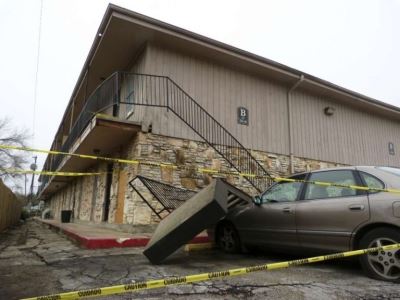If you are renting property, there are certain expectations as to the living conditions which your landlord must provide. If you are injured due to an unsafe condition in your apartment or other rental property, it is possible that you may have a premises liability claim against your landlord. A landlord is most likely to be liable for poor maintenance of property or an unsafe condition under a negligence claim. California jury instructions instruct liability may be found according to the following:
[Plaintiff] claims that [he/she] was harmed because of the way [defendant] managed [his/her/its] property. To establish this claim, [plaintiff] must prove all of the following:
1. That [defendant] [owned/leased/occupied/controlled] the property;
2. That [defendant] was negligent in the use or maintenance of the property;
3. That [plaintiff] was harmed; and
4. That [defendant]’s negligence was a substantial factor in causing [plaintiff]’s harm.[1]
Part of a negligence finding involves showing that the landlord breached the duty they owe the lessee. California Jury Instructions describe the duty:
A landlord must conduct reasonable periodic inspections of rental property whenever the landlord has the legal right of possession. Before giving possession of leased property to a tenant [or on renewal of a lease] [or after retaking possession from a tenant], a landlord must conduct a reasonable inspection of the property for unsafe conditions and must take reasonable precautions to prevent injury due to the conditions that were or reasonably should have been discovered in the process. The inspection must include common areas under the landlord’s control.
After a tenant has taken possession, a landlord must take reasonable precautions to prevent injury due to any unsafe condition in an area of the premises under the landlord’s control if the landlord knows or reasonably should have known about it. [2]
In short, a landlord owes a duty to the tenant and general public to keep the premises in safe condition. However, a landlord is usually precluded from liability where the dangerous condition arose after possession was transferred [3] In deciding whether the defendant used reasonable care, a jury may consider the following factors [4]:
(a) The location of the property;
(b) The likelihood that someone would come on to the property in the same manner as [plaintiff] did;
(c) The likelihood of harm;
(d) The probable seriousness of such harm;
(e) Whether [defendant] knew or should have known of the condition that created the risk of harm;
(f) The difficulty of protecting against the risk of such harm; [and]
(g) The extent of [defendant]’s control over the condition that created the risk of harm; [and]
(h) [Other relevant factor(s).]
Additionally, it is important to note that there is a category of things for which the landlord’s duty is established by law. A presumption of negligence will arise in these circumstances if the defendant violated the legal obligation and this caused plaintiff harm.[5] For example, a landlord’s failure to install smoke alarms will fall under this doctrine where state law requires installation of smoke alarms.[6] Whether the landlord was reasonable or not in their behavior, they will be liable if you are injured from a fire that likely would have been extinguished had the smoke alarms been in place.
[1] Judicial Council Of California Civil Jury Instruction 1000, Judicial Council Of California Civil Jury Instruction 1000.
[2] Judicial Council Of California Civil Jury Instruction 1006, Judicial Council Of California Civil Jury Instruction 1006.
[3] Garcia v. Holt, 242 Cal. App. 4th 600, 604 (2015).
[4] Judicial Council Of California Civil Jury Instruction 1001, Judicial Council Of California Civil Jury Instruction 1001.
[5] Cal. Evid. Code § 669.
[6] Cal. Health & Safety Code § 13113.7.


